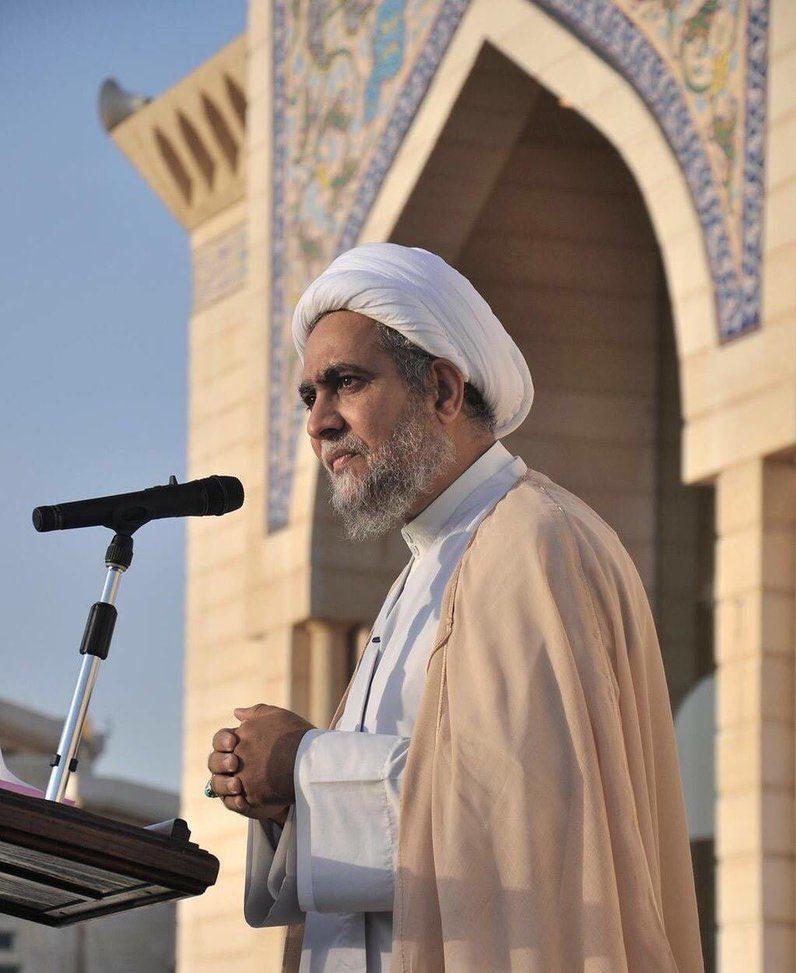
October 28, 2016:Concurrently with Saudi Arabia’s re-election for membership in the UN Human Rights Council(HRC)(which extends till 2019), the Kingdom of Saudi Arabia started the trial of Sheikh Mohammed al Habib, human rights defender.
July 8, 2016: Sheikh Mohammed Al Habib (born in November 6th,1964) was heading to Kuwait through the land border Al Khafji (Saudi-Kuwaiti border); his family lost connection with him despite their attempts to reach him, they did not receive any information about him and/or his whereabouts.
July 10, 2016: Four days after his arrest, his family received a short phone call from him informing them that he was detained in the Intelligence Prison in Dammam. He did not explain the reasons and circumstances for his detention.
Sheikh Al Habib was held unreachable for130 days in solitary confinement except for a single time he was taken to the Specialized Criminal Court for a hearing session but the hearing did not take place for reasons unknown. At the court his family was able to see him for the first time since his detention.
Sheikh Al Habib was allowed to appoint a lawyer but after months of his detention and after his trial were held. This is a violation of his right to have a proper defense from the beginning of his detention.
October 27, 2016:Ahearingsession was held: charges of incitement to (Wollat Alamr)and sedition against the authorities were pressed against him. This session was preceded by several sessions where no charges were pressed. The latest hearing session was held on 30 November 2016,and was allocated to submitting vindications; it is not to be the last hearing session.
Sheikh Al Habib was active in Qatif and in his hometown Safwa. In his multiple speeches he called for reformation, social justice, freedom of speech, removal of the sectarian discrimination, freedom of political participation, and the release of all activists who are imprisoned for peacefully exercise their right of freedom of speech.
During a sermon on 3 August 2012, he insisted that arbitrary detention, killings, and suppression of public freedom leads to disturbances of the relation between the society and the authority. He also stressed the need for the acknowledgement of the right of political participation and social justice for all. On 12 june 2015,he called to deal with extremism and terrorism through intellectual and systematic processes. He was also opposed arbitrary detentions and the detention of the social justice activist Sheikh Nimr Al-Nimr; because Sheikh Al-Nimr did not commit any offense, Sheikh Al-Habib demanded justice in Sheikh Al-Nimr’s case
Sheikh al Habib had been subjected to several harassments by the Saudi government, including investigation and arrest; he was previously detained at King Fahd Airport in Dammam during his return from a cultural event in the Sultanate of Oman on the 12 December 2012. Hours later, he was released.
The European Saudi Organization for Human Rights (ESOHR) asserts that what happened to Sheikh al Habib was an arbitrary detention and were in clear violation to a number of international laws and conventions, including the third article of the Universal Declaration of Human Rights: “[Everyone has the right] to life, liberty, and security of person.” Also, Article 14 of the Arab Charter on Human Rights, which states that “Everyone has the right to liberty and security of person. No one shall be subjected to arbitrary arrest, search or detention without a legal warrant. No one shall be deprived of-his liberty except on such grounds and in such circumstances as are determined by law and in accordance with such procedure as is established thereby.”It further contradicts what the President of the Saudi human rights council Bandar Al-Aiban claimed on 31 May 2016 regarding Saudi Arabia’s commitment to human rights laws.
The ESOHR indicate that the charges against Sheikh Al Habib confirms that he was detained because he expressed his opinions and demanded freedom and rights, his detention is not because committing criminal acts but as a retaliation against him due to his mentioned stands. Furthermore, his trial in the Specialized Criminal Court that deals with issues of terrorism is an explicit offense to all human rights defenders and an advocacy of a legal analysis for the terrorism laws and regulations in Saudi Arabia published by the ESOHR concluded that the Saudi anti-terrorism laws are used to target human rights defenders.
The ESOHR is demanding for an immediate and unconditional release of Sheikh Al Habib; the implementation of the demands filed by the Working Group on Arbitrary Detention also insist on the release of all detainees if the background of their activities relates to the protection and promotion of human rights; it also stresses on the need to ensure the freedom and safety of all human rights and social justice defenders and to stop the use of intimidation and threats.
Appendix: Wollat Alamr: An Islamic title which has different interpretations based on each Islamic school. in Saudi Arabia they interpret the term based on the Wahhabism school with using the title for the King or his crown prince.
